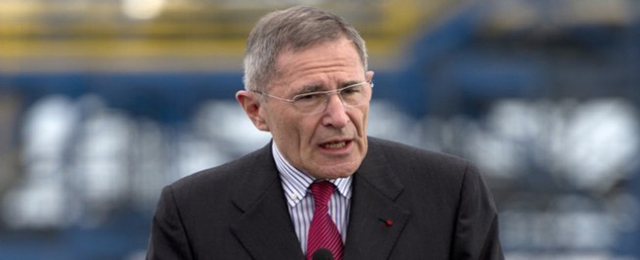Q. The EC thinks that Gazprom could be abusing its dominant position in some regions and countries in the European gas market. What do you think?
A. We have been one of Gazprom’s energy partners for 35 years…first (a partner) of Russia and later of Gazprom. And we don’t have any complaints. Our relationships have been completely reliable, and Gazprom has been a very reliable gas partner and distributor for the last 35 years.
The only interruption we had was in 2009, when the crisis between Russia and Ukraine reached one of its critical moments. At that point, Russia interrupted the distribution of gas to Ukraine.
And at that time, that was the only way to bring the gas to Europe. Today there are other ways: Northstream, linking Russia to Germany via the Baltic Sea. We are shareholders in this infrastructure.
Q. So is the Russian energy threat exaggerated?
A. I would simply say that the security of electricity supply in Europe worries us more than the security of gas supply. There are large amounts of gas throughout the world today and it is usually available at reasonable prices. There are ways to distribute this gas via pipelines from Norway, the North Sea, Algeria…those means exist. And I would even add that gas consumption is decreasing more and more in Europe because of energy efficiency.
Q. Gas is actually the fossil fuel with the lowest environmental impact. The energy efficiency that you refer to, will that be an advantage for Europe when it takes on new targets in the Climate Change Conference in Paris next December?
A. Companies in the sector generally consider that an agreement in Paris is necessary – an ambitious and realistic agreement.
We far prefer to have a deal on the table than not to have one, as happened in Copenhagen. Failing to reach an agreement would mean uncertainty, a lack of visibility and, more than likely, some disorder in the different national carbon markets. The absence of clear guidelines and propsects might also mean a setback for companies’ investments. So we want an agreement.
*Continue reading: Gérard Mestrallet: The risk of takeover bids in the energy industry is fairly limited






Be the first to comment on "“GDF Suez shareholders will decide whether or not to grant a double voting right to those who have owned their shares for two years”"